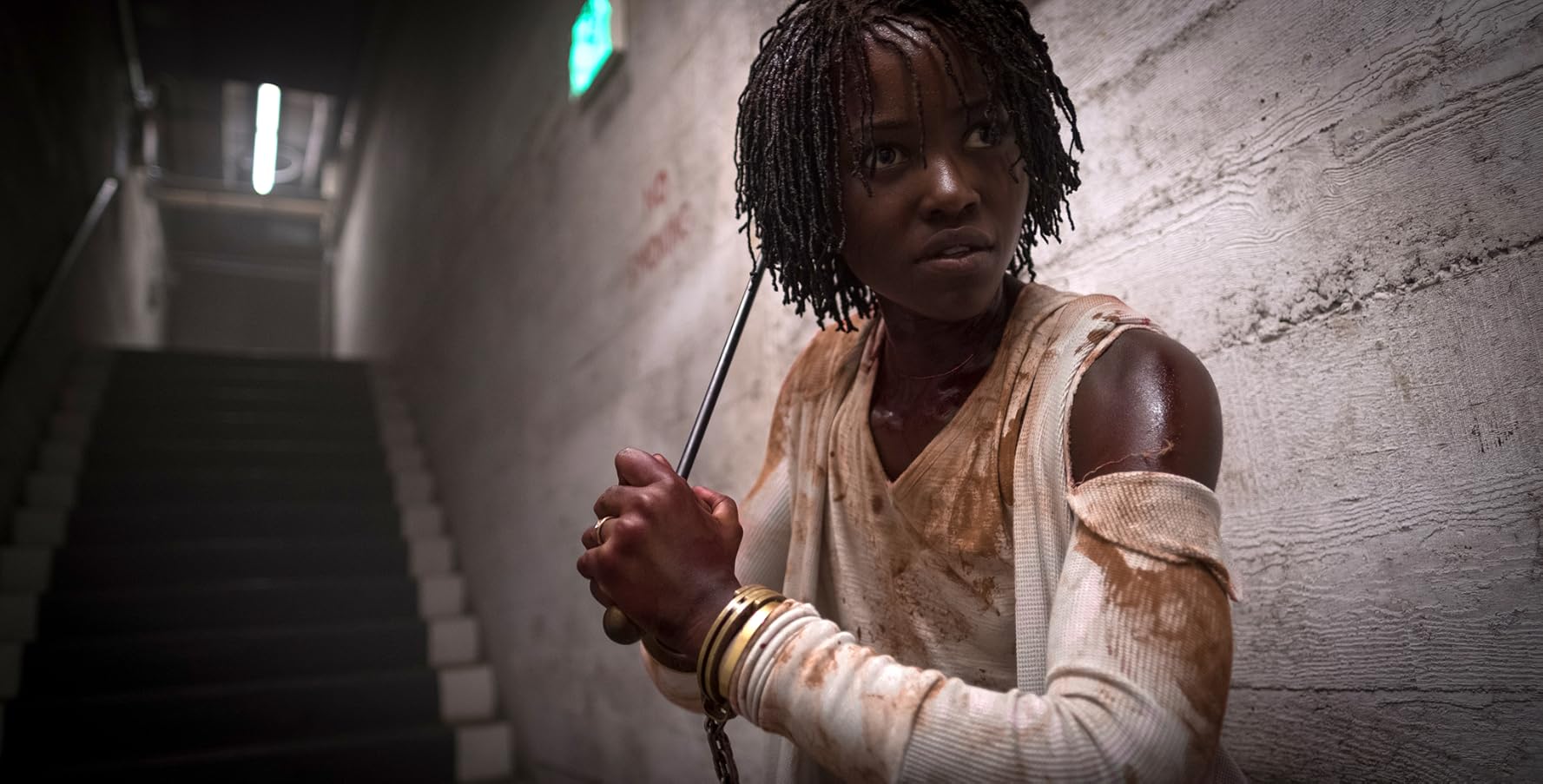 |
| Dumbo in his film, Dumbo. Image courtesy Disney. |
It's been awhile since Tim Burton
has made an interesting movie. His recent slate of films have been
either incomplete efforts – inklings of his old aspirations that
never quite land – or yeoman work for Disney. Dumbo,
Burton's interpretation of classic (and wicked racist) Disney film,
fits more in the former category than the latter. It has a few
moments of zaniness befitting Beetlejuice or Pee-wee's Big
Adventure, but the result is often frustrating and ultimately
slight.
Dumbo
stars Colin Farrell as Holt Farrier, a cowboy returning home to
circus life following his service in World War I. His transition back
to being a performer is rocky at best; his wife died of influenza,
leaving him alone with daughter Milly (Nico Parker) and son Joe
(Finley Hobbins). Ringmaster Max Medici (Danny DeVito) has demoted
him to elephant handler, and his chances of getting his old job back
are stymied by the arm he lost in the war. But things start to turn
with the addition of Jumbo the elephant, who soon gives birth to the
eponymous large-eared creature. Once Dumbo starts to fly, he draws
the attention of V.A. Vandevere (Michael Keaton), who runs the
wondrous Dreamland in the big city. Vandevere wants to pair Dumbo
with the high-flying Colette (Eva Green) to create the most magnetic
act in town, but the Farriers soon learn Dreamland is little more
than a facade.
The
funny thing about Dumbo
is the movie isn't about its titular character, but about the
struggles of the Farrier family. It's a pragmatic script choice, as
it's difficult to center the movie around a CGI elephant that doesn't
speak, but it causes the film to lose a lot of its luster. The
Farrier family troubles are far less interesting than the issues
Dumbo and Jumbo face, or, rather, the film does a poor job selling
the emotional complexities between Holt, Milly, and Joe. It's
surprising considering how many hurdles screenwriter Ehren Kruger
threw at the Farriers – a barely employed father returning from war
without an arm to two children who recently lost their mother is kind
of a cheat. Somehow, the film doesn't take advantage of the cheat it
gave itself; the relationships are never given the time needed to
grow from that problematic baseline. Things are awkward until they're
not, and few bumps or troubles are depicted.
Even though the story is about the
Farriers, the movie's heart belongs to Dumbo and Jumbo. Their
connection is what should own the story, at least given the amount of
heft Burton and Kruger put into the silent tale of mourning
elephants. Yet the story balance is completely off; by dividing the
narrative between the Farriers and the elephants, the film never
gives enough time to either family unit to grow. . Making the movie
live action effectively necessitates the addition of human characters
to drive the story, but the human family is the worst part of this
movie.
There's
a lot to be frustrated with about Dumbo.
The story is wonky and littered with holes – the flying elephant is
the most realistic aspect of the movie. The dialog is uninspired,
leaving the actors with little buffer to fail. The performances,
aside from Keaton and Green, are spotty to weak. The filmmakers
effectively doubled the run time of the original to add more story
and didn't have much of a story to tell.
Except
for the existence of Dreamland and Vandevere. This is about as close
as viewers get to the old Burton, an oddly fascinating place that
doesn't try too hard to be quirky. Dreamland contains a lot of
potential as a setting, given the electric wonders and how poorly the
lights hide the park's dark soul. It's a place where dreams come
true, but the price is unfathomable, not too far removed from
Pinocchio's
Pleasure Island. Dreamland though is underutilized as a location;
there's far more to the place than the film allows viewers to see
because the first act is spent in the middle of nowhere. Perhaps
Burton would have been better served setting the entire film in
Dreamland, allowing the place's inherent creepiness to sell the
inevitable feel-good ending. Dreamland is about as close as it gets
to old-school Burton, making it so cruel how close Dumbo
is to being the fantastically strange film its meant to be.
Review: Two out of Five Stars
Click here to see the trailer.
Rating: PG
Run time: 112 minutes
Genre: Fantasy
tl;dr
What
Worked: Michael
Keaton, Eva Green, Dumbo and Jumbo
What
Fell Short: CGI,
Inconsistent Acting, Script Issues
What
To Watch Instead:
Dumbo
